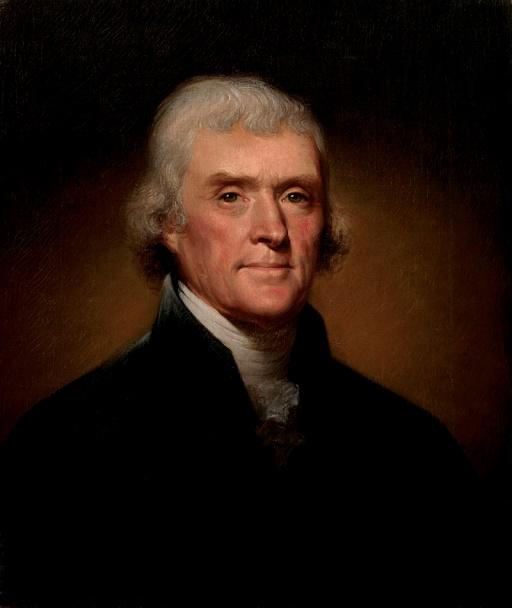
Library of Congress
When the Jay Treaty took effect in 1796, President George Washington accomplished his goal of improving diplomatic relations with Great Britain. Less than ten years later, President Thomas Jefferson let the treaty’s commercial clauses expire. But when the Royal Navy began seizing American merchant ships, Congress urged the President to work out a settlement.
Jefferson had two crucial diplomatic objectives in mind. First, he wanted to persuade the British to stop impressment, the practice of forcing American sailors to serve aboard British naval vessels. Second, he wanted to resolve the issue of neutral trading rights for American merchant ships. Yet despite months of negotiations, the two sides reached no compromise over impressment and only limited agreements over neutral trading rights.
Why did Britain refuse to yield? From their standpoint, their global struggle with Napoleon simply took priority over good relations with the Americans. Because a major part of that struggle for national survival took place on the high seas, the British Admiralty insisted that it could not man its warships without impressment. Any compromise on the demands of manpower, the Admiralty argued, undermined the war effort against France. The British had also begun to clamp down on neutral shipping in the hopes of gaining an economic advantage over their French rivals, a practice that hurt American economic interests and wounded Americans’ sense of national pride.
Often at odds with the British even before this period of heightened tensions, Great Britain’s obstinate stance was too much for Jefferson. Jefferson’s refusal to send the so-called Monroe-Pinckney Treaty to the Senate for ratification doomed the accord.
Failure to renew the terms of the 1796 Jay Treaty reignited American-British antagonism, marking a turning point that steered the two nations on a collision course. President Jefferson’s decision to forego a chance for peace in 1807 would shape the future of the United States and the destinies of thousands living in North America for years to come.
Last updated: May 24, 2016
